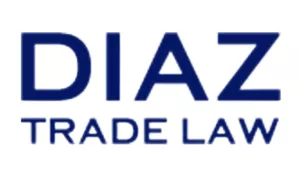The Department of Commerce's Bureau of Industry and Security (BIS) recently published guidance for financial institutions containing several recommendations for complying with the Export Administration Regulations (EAR).
The guidance provides recommendations on steps financial institutions can take to minimize the likelihood of EAR violations. The recommendations focus on three key areas: due diligence best practices, reviewing transactions for red flags, and real-time screening.
Due Diligence Best Practices
The guidance recommends that financial institutions incorporate EAR related due diligence into their compliance and risk management and compliance processes. Due diligence should be conducted both before onboarding a new customer and as part of regular due diligence thereafter.
Specifically, BIS recommends that financial institutions:
- Review customers against lists of persons subject to BIS's end-user restrictions
- Review customers – and, where appropriate, customers' customers – against lists of entities that have shipped Common High Priority List (CHPL) items to Russia since 2023
- Ask a customer to certify that it has controls in place to comply with the EAR if the customer is engaged in the export, reexport or transfer of items subject to the EAR and is on a restricted-party list
Review Transactions for Red Flags
The guidance recommends that financial institutions review transactions on an ongoing basis for red flags:
- Purchases under a letter of credit that are consigned to the issuing bank, not to the actual end user.
- Transactions involving entities with little to no web presence, such as a website or a domain based email account.
- A customer lacks or refuses to provide details to banks, shippers, or third parties.
- Transactions involving customers with phone numbers with country codes that do not match the destination country.
- The item does not fit the purchaser's line of business.
See the full list of red flags here.
BIS recommends that in addition to monitoring for red flags, financial institutions should have processes in place to take action to prevent violations of the EAR before proceeding with any transactions involving the customer.
Real-Time Screening
While BIS does not expect financial institutions to engage in real-time screening of all transactions, BIS recommends real-time screening against certain BIS-administered restricted party lists in certain circumstances to avoid potential violations.
BIS recommends real-time screening against the names and addresses on the following lists:
- The BIS Denied Persons List
- Certain persons designated on the Entity List (ex. Entities subject to the Entity List Foreign Direct Product (FDP) rule)
- Other persons included on the Entity List and subject to the license review policy set forth in 15 CFR 744 (nuclear end uses, rocket systems, unmanned aerial vehicles, and chemical and biological weapons end-uses)
In circumstances where there is a match to a party on one of the lists set forth above, BIS recommends that financial institutions decline to proceed with a transaction until the institution can confirm that the underlying export, reexport, or transfer is authorized under the EAR or not subject to the EAR.
Incorporate these Guidelines Into Your Export Compliance Plan
Violations of the EAR carry hefty civil and criminal penalties. Exporters can pay hundreds of thousands of dollars in penalties, lose export privileges, and even be imprisoned. Fortunately, there is a lot you can do to be proactive about your export compliance. Diaz Trade Law can provide assistance with a number of EAR-related matters including developing a compliance plan, export compliance training, transaction vetting, voluntary self-disclosures, and more.
The content of this article is intended to provide a general guide to the subject matter. Specialist advice should be sought about your specific circumstances.


